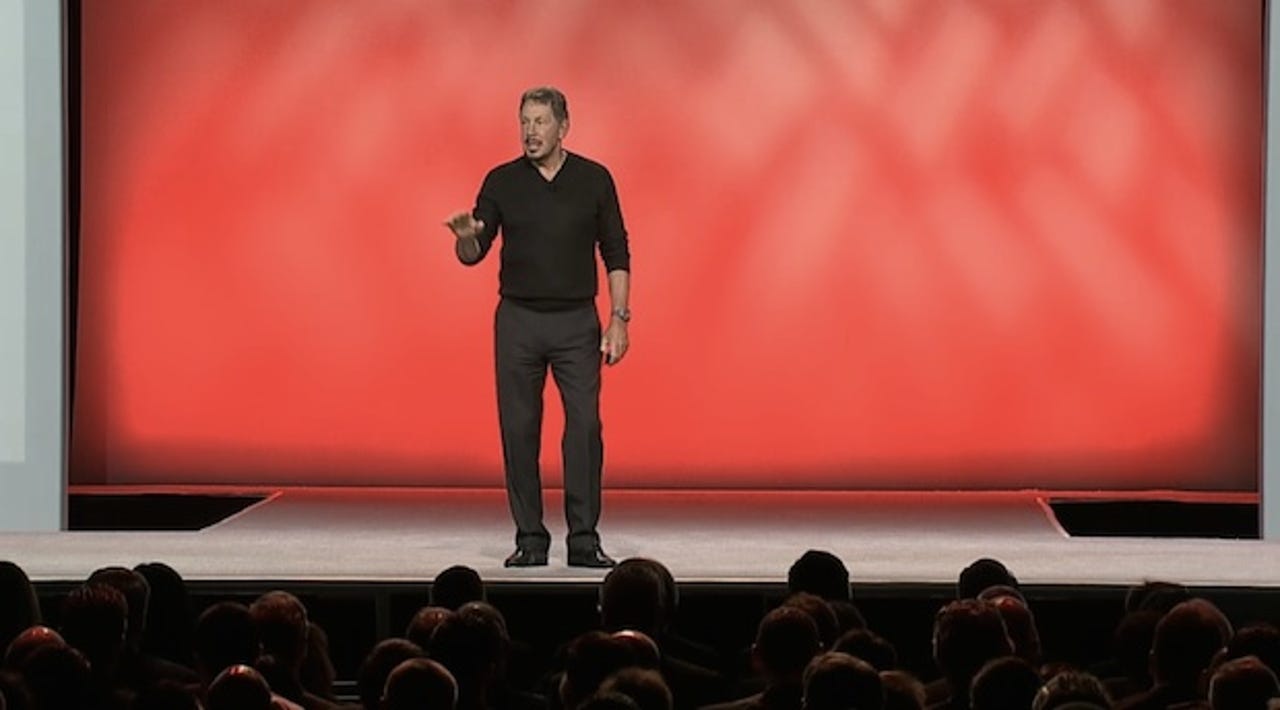Oracle's Larry Ellison makes case for better cloud security, M7 chip


SAN FRANCISCO---The biggest concern in cloud right now is security, asserted Oracle executive chairman Larry Ellison.
"We need much better security. We need a next-generation of security because we are not winning a lot of these cyber battles," Ellison argued. "We are losing a lot of these cyber battles. We haven't lost the war. But we're losing battles."
OpenWorld 2019
Picking up from where he left off on Sunday night, Ellison continued to a packed conference hall on Tuesday afternoon that these battles, or "technology confrontations," can take many forms, whether they are nations and companies pitted against each other or even "hackers against ethical technologists."
The current state of the art isn't getting it done, Ellison insisted, pointing toward just tens of individual hacks on individual retailers that have resulted tens of millions credit card numbers stolen.
"We have to rethink how we deliver technology, especially as vast amounts of data are moved to the cloud," Ellison posited. "If we're going to move all of this data to the cloud, we have to make sure this data is secure."
Also Oracle's chief technology officer, Ellison rattled off a few cloud security rules of thumb, including database security is better than application security (meaning security features should be pushed as low in the stack as possible), silicon security is better than operating system security, and security features should always be on.
"Even the best hackers have not figured out a way to download changes to your microprocessor," Ellison noted. "You can't alter the silicon. That's really tricky."
Ellison admitted the last piece of advice about keeping security features on at all times seems obvious, but he lamented that there shouldn't even be a way to turn off encryption at all.
Oracle touted its own advancements in cloud security at the silicon level on the new M7 microprocessor chip family, boasting faster hardware and encryption rates.
"It's always on. You cannot turn it off," Ellison stressed, divulging that Oracle would be producing more chips geared toward cloud security in the future.
Available to order now, the SuperCluster M7 and SPARC M7-based servers were designed for managing data encryption and traffic between existing IT infrastructures and workloads going to the cloud.
"This is a big deal. This is as big a deal as when personal computers showed up," Ellison said about cloud technology in general, which has been the primary focus at the tech giant's annual OpenWorld conference this week.
Ellison said Oracle is "very close to finished" to building its full-fledged cloud platform, but he acknowledged it has been a long time coming, describing engineering efforts have been ongoing for the last decade.
A three-tiered platform comprised of software, platform and infrastructure all delivered as-a-service is essential to be a considered a serious player in this market, Ellison opined.
"I'm not suggesting everything is going to be moved to the cloud, but it won't be long," Ellison clarified. "Certainly within the next decade, the majority of computing will be done in the cloud, and a minority will be done on-premises."
Ellison cited Salesforce.com and Workday as Oracle's two primary competitors at the application layer, once again brushing off SAP as irrelevant and describing most other cloud players as "small, relatively new and only have an application or two."